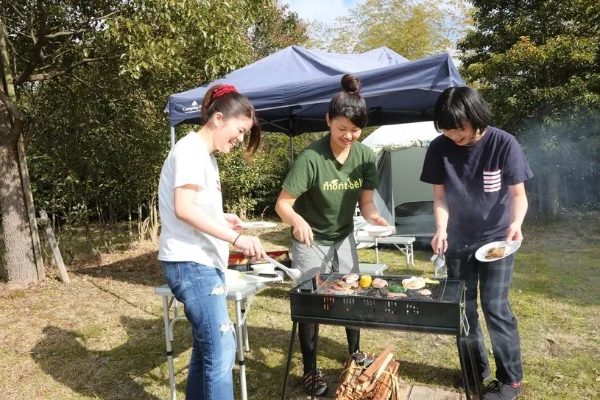A tent stove is a compact heating device designed for use in tents and other outdoor shelters. It provides warmth and can often be used for cooking. Understanding tent stoves is essential for those who enjoy camping, hiking, or any outdoor adventures in colder weather.
Types of Tent Stoves
Tent stoves come in various designs and materials. Here are the most common types:
Wood Burning Stoves: These are the most traditional types. They use wood as fuel, providing a high heat output. They are ideal for extended stays in cold environments.
Propane Stoves: These stoves use propane tanks as fuel. They are convenient and easy to use but may require careful handling due to gas safety concerns.
Coal Stoves: Some tents are equipped with coal-burning stoves. Coal burns longer than wood, providing consistent heat over extended periods.
Multi-Fuel Stoves: These versatile stoves can burn different fuels, such as wood, propane, or even kerosene. This adaptability makes them popular among serious outdoor enthusiasts.
Key Features of Tent Stoves
Tent stoves come with several features that enhance their functionality:
Chimneys: Most tent stoves include a chimney system. This directs smoke outside the tent, preventing buildup and ensuring air quality inside.
Heat Output: The heating capacity of a stove is measured in BTUs (British Thermal Units). Higher BTU ratings indicate a more powerful stove.
Portability: Many tent stoves are designed to be lightweight and easy to transport. Some models can be disassembled for compact storage.
Cooking Surface: Some tent stoves come with a flat top, allowing you to use them for cooking. This feature adds versatility, making it easier to prepare meals while staying warm.
Benefits of Using a Tent Stove
Using a tent stove offers numerous advantages:
Heat: The most obvious benefit is warmth. A tent stove keeps the inside of the tent cozy, even in frigid temperatures.
Cooking: Tent stoves enable you to cook meals in the comfort of your tent. This is especially helpful in adverse weather conditions.
Drying Gear: The heat from the stove can help dry wet clothing and gear, keeping you comfortable during your trip.
Extended Seasons: With a reliable heating source, you can camp in colder months, extending your outdoor adventures.
Choosing the Right Tent Stove
Selecting the right tent stove involves several considerations:
Tent Size: Ensure that the stove fits your tent. Larger tents may require more powerful stoves.
Weight: Consider how much weight you can carry. Lightweight options are preferable for backpacking.
Fuel Type: Choose a stove that uses the fuel you are comfortable handling. Wood stoves require sourcing wood, while propane stoves need gas tanks.
Budget: Prices for tent stoves vary widely. Determine your budget before shopping to narrow down options.
Setting Up a Tent Stove
Setting up a tent stove requires attention to detail to ensure safety and efficiency:
Location: Place the stove in a central location, away from walls and flammable materials. Ensure it’s stable on the ground.
Chimney Installation: Install the chimney according to the manufacturer’s instructions. Ensure it extends above the tent and is securely connected.
Ventilation: Maintain proper ventilation in the tent. This prevents carbon monoxide buildup, which can be deadly.
Heat Shields: Some stoves come with heat shields. Use these to protect the tent fabric from excessive heat.
Safety Tips for Using a Tent Stove
Safety is paramount when using a tent stove:
Carbon Monoxide Detector: Consider using a battery-operated carbon monoxide detector inside your tent for early warnings.
Check for Leaks: For propane stoves, regularly check connections for leaks before lighting the stove.
Use Dry Wood: If using a wood stove, always burn dry, seasoned wood to minimize smoke and creosote buildup.
Never Leave Unattended: Never leave a burning stove unattended. Always extinguish it before sleeping.
Keep a Fire Extinguisher: Have a fire extinguisher nearby in case of emergencies.
Common Uses for Tent Stoves
Tent stoves are versatile tools that can be used for various activities:
Winter Camping: Ideal for camping in snow-covered landscapes, tent stoves ensure a warm environment.
Hunting Trips: They are popular among hunters for warmth and cooking while staying in remote areas.
Fishing Expeditions: Ice fishermen often use tent stoves in their shelters to stay warm while fishing in frigid conditions.
Emergency Preparedness: Tent stoves can serve as emergency heating solutions during power outages or natural disasters.
Cleaning and Maintenance
Proper maintenance extends the life of your tent stove:
Regular Cleaning: After each use, clean out ash and debris. This prevents buildup that can reduce efficiency.
Inspect Parts: Regularly check the stove for any signs of wear or damage. Pay attention to the chimney and seals.
Store Properly: When not in use, store the stove in a dry place. This prevents rust and damage.
Follow Manufacturer Instructions: Always adhere to the specific cleaning and maintenance guidelines provided by the manufacturer.
Conclusion
Tent stoves are invaluable tools for outdoor enthusiasts. They provide heat, enable cooking, and enhance the overall camping experience. By understanding the types, features, and safety considerations of tent stoves, you can choose the right model for your needs and enjoy your outdoor adventures year-round. Whether you are winter camping or preparing for a fishing trip, a tent stove can significantly improve your comfort and enjoyment in the great outdoors.
Related topics:
- Top 5 Multi-Fuel Camping Stoves
- Best Freeze-Dried Camping Meals
- The Best Winter Sleeping Bags: Guide to Staying Warm and Comfortable

